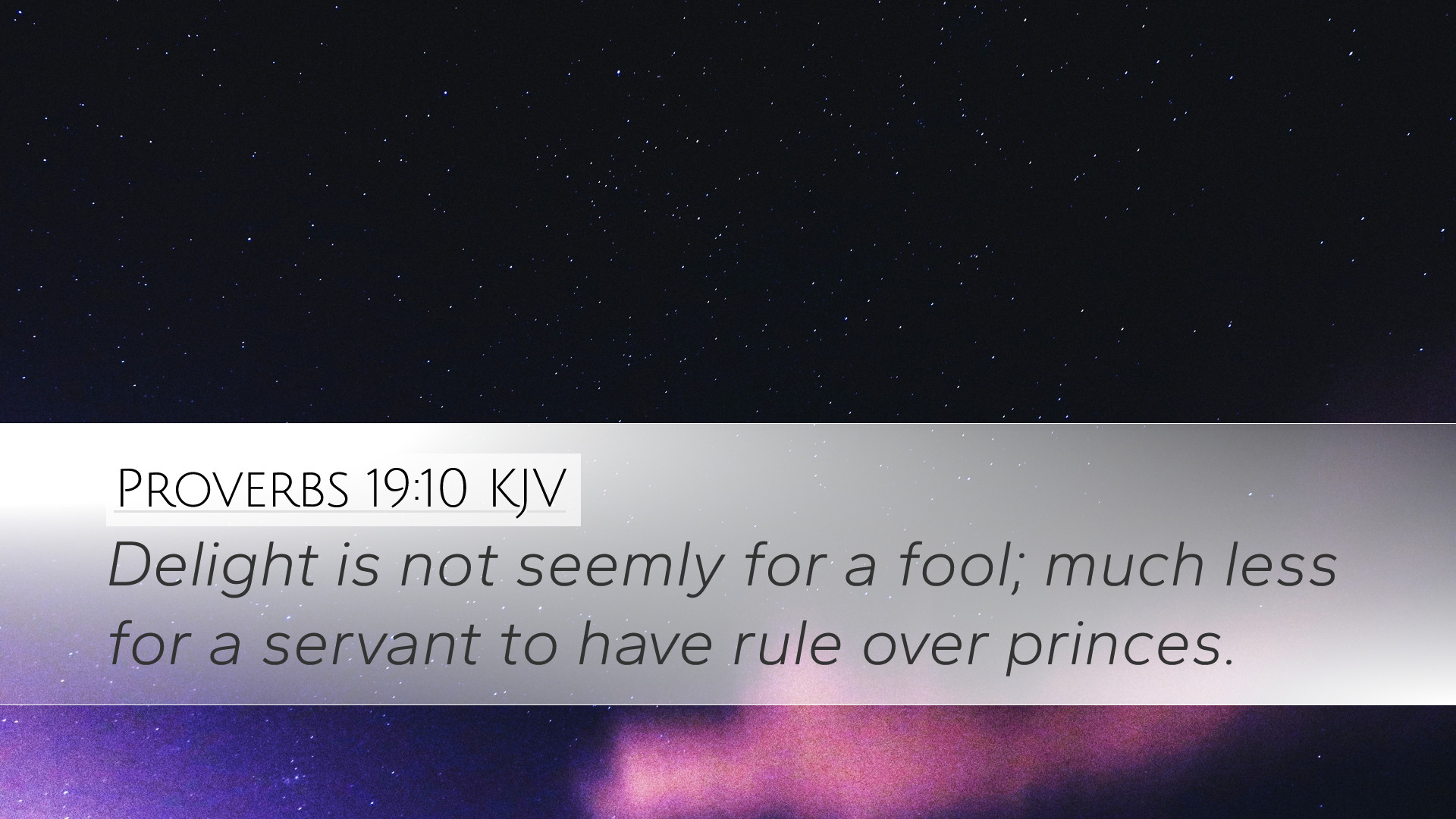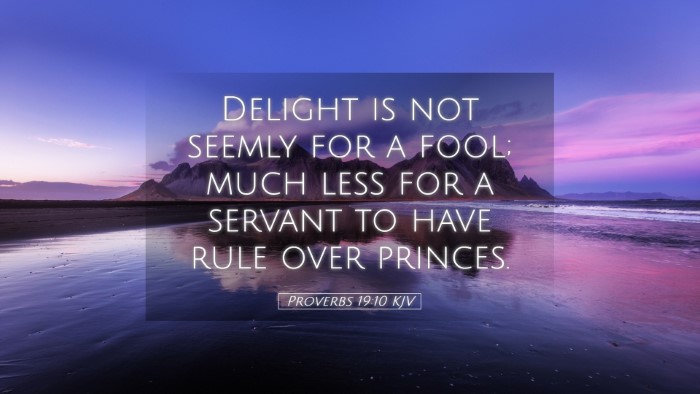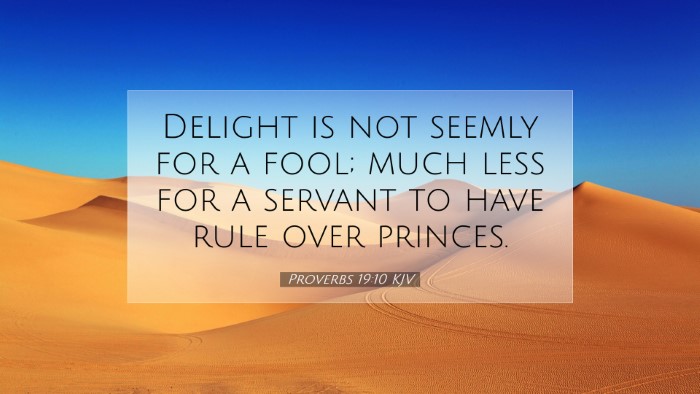Commentary on Proverbs 19:10
Verse Text: "Delight is not seemly for a fool; much less for a servant to have rule over princes."
Introduction
This verse from Proverbs 19 provides profound insights into the nature of wisdom, authority, and the characteristics of those in positions of influence. The verse can be dissected into two essential parts: the inappropriateness of delight for fools and the unexpected circumstances of a servant ruling over princes.
Exegesis and Commentary
1. The Nature of Delight
Matthew Henry observes that delight, which is generally viewed as a positive emotion, loses its value when connected to a fool. A fool, in this context, is defined not merely as one lacking wisdom but as someone who often acts contrary to sound judgment and moral living. The presence of delight in their life indicates a misunderstanding of joyful experiences and an inability to engage with true wisdom.
Albert Barnes elaborates on the nature of the fool, emphasizing that a fool finds joy in fleeting pleasures rather than substantive, wise pursuits. For a fool, delight is a misguided feeling, indicating a lack of self-awareness and recognition of reality's deeper truths.
Adam Clarke suggests that this "delight" could refer to the joy that accompanies frivolous activities, further emphasizing that delight derived from folly fails to lead to genuine happiness or fulfillment. The fool enjoys a transient satisfaction that lacks depth and leads to destruction.
2. Authority and its Distribution
The second part of the verse juxtaposes a servant's authority over princes, revealing deep socio-political insights into governance and competence. Matthew Henry reflects that it is perverse for a servant, typically regarded as subordinate, to rise to power over those who are naturally his superiors. This inversion of roles highlights the chaos and disorder that often accompanies the foolish exercise of power.
Albert Barnes supports this by asserting that such scenarios reflect a moral and societal breakdown where wisdom and the rightful exercise of authority are disregarded. He asserts that the administration of society should reflect wisdom, and deviations lead to imprudent governance.
Adam Clarke adds that this aspect could indicate a profound societal critique, warning against the consequences of incompetence among those in power. His interpretation suggests that the appropriate structure of authority is crucial for the functioning of society, underscoring a divine order that governs both the natural and social realms.
Theological Implications
1. Wisdom vs. Foolishness
This proverbs text encapsulates a vivid contrast between wisdom and foolishness. The presence of a fool is a recurrent theme throughout Proverbs, a representation of someone who disregards divine wisdom and rejects sound understanding. In theological terms, the fool is often seen as one who is rebellious against God's created order and lacks reverence for divine authority.
2. The Right Use of Authority
The reference to a servant ruling over princes serves as a dire warning. Theologically, it implies that authority is ordained by God, and when individuals who lack wisdom are placed in positions of power, it results in turmoil and chaos. The church and society both have a stake in ensuring that wise and godly individuals occupy roles of influence and leadership.
Practical Applications
1. Self-Examination for Leaders
Pastors and church leaders are encouraged to continually examine their own lives and the wisdom that governs their decision-making. Delight derived from a personal relationship with God fosters true joy that stands in stark contrast to the fool’s delight.
2. Discernment in Leadership
For congregations, an emphasis must be placed on discernment when selecting leaders. Understanding the weight of authority and the necessity of wisdom can guide churches in the healthy growth and sustainability of their community.
Conclusion
Proverbs 19:10 serves as a beacon of wisdom for all who desire to guide themselves and others in accordance with biblical truth. It challenges readers to reject the patterns of folly in personal behavior and societal governance, embracing instead the wisdom that is grounded in reverence for God. The insights presented in public domain commentaries thus enrich our understanding of the importance of wisdom in all aspects of life, particularly in leadership and authority.


